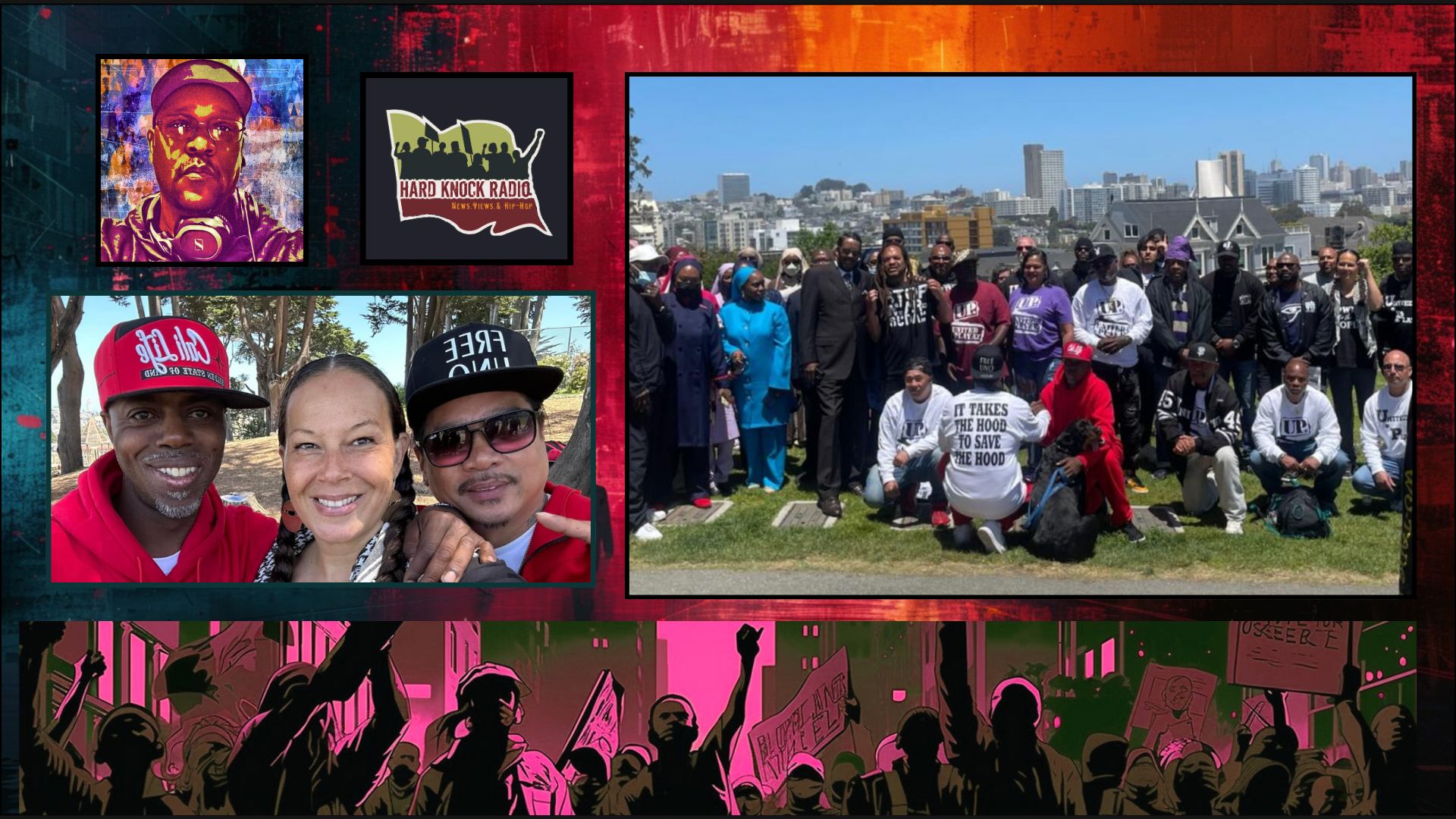On Hard Knock Radio, host Davey D sat down with Sevgi Fernandez of Together We Stand, Terry Williams, a victim of a series of hate crime and Rudy Corpuz of United Playaz, to discuss the alarming rise in hate crimes in San Francisco.
Terry’s Harassment and House Fire
Terry, who runs a dog-walking business, recounted his experiences of racial harassment that occured over a period of several months that escalated into threats and ultimately led to the burning down of his parents’ house. Both of his parents were hospitalized as a result of the fire. This incident highlighted the increasing hate crimes in the city. Terry and his family appeared on the show to share their story and seek justice.
Terry’s Harassment and Encounters with Police
Terry spoke about the racial harassment he faced, including being accused of having vicious dogs despite being a responsible owner. He described his difficulties in dealing with the police, particularly an officer who often obstructed his attempts to file complaints. Terry shared a court case where he was wrongly accused of having a vicious dog but successfully proved his innocence. Despite the harassment, his business continued to grow.
Entrepreneurial Journeys and Changing Demographics
Terry shared his entrepreneurial journey and confidence in his business’s growth. Davey D introduced Terry and Rudy, emphasizing their community roles. Rudy discussed his experiences growing up in San Francisco and his commitment to securing land for the community. The conversation turned to the changing demographics of San Francisco, highlighting the displacement of long-time residents due to gentrification and the challenges faced by newcomers who aimed to “clean up” the city without acknowledging its existing communities.
Addressing Hate and Gentrification
Rudy discussed the threats posed by various groups and the importance of caution. Sevgi Fernandez touched on the hateful rhetoric at rallies in the Bay Area, specifically mentioning “Blue Lives Matter” and “MAGA” hats. The need for ideas to counteract this hate was emphasized. A rally was organized to support Terry and protest against hate and gentrification in San Francisco, scheduled for June 1st at Alamo Square Park. She also noted that it was hard to believe that the issues her father faced as a member of the Black Panther Party, where they had to protect Black folks from hate crimes and patrol neighborhoods in places like Boston where crosses were burned, were manifesting themselves in SF 50 years later.
Stereotypical Narratives of Black Criminals
Davey D expressed concern about the narrative that portrays Black individuals as criminals, perpetuated by well-funded right-wing websites. This narrative leads to negative perceptions and potential victimization of Black people, despite a generally decreasing crime rate. The false portrayal of cities being overrun by crime was critiqued.
Neighborhood Solidarity and Combating Prejudice
Terry shared stories of support and solidarity in his neighborhood, especially during challenging times. In response to a question from Davey D about combating negative occurrences, Terry advised increasing community engagement and mutual support among neighbors. He also discussed his experiences with racial prejudice and exclusion, highlighting the hypocrisy of being accused of breaking rules when he was actually enforcing them. He warned about the potential misuse of dogs as a tool for targeting individuals.
House Fire, Rally, and Support for Victims
Davey D and Rudy discussed the recent house fire and the systemic issues leading to the misdiagnosis of the victims’ injuries. They promoted the upcoming rally against hate and encouraged unity against injustice, inspired by Terry’s response to hate. They also mentioned a GoFundMe organized by Jack for Terry’s family and discussed informing notable figures like Freeway Rick, Little D, and Fab about the event in Terry’s honor.
This comprehensive discussion on Hard Knock Radio aimed to shed light on the increasing hate crimes in San Francisco, the systemic issues faced by victims, and the importance of community solidarity and activism against hate and gentrification.


Leave a Reply